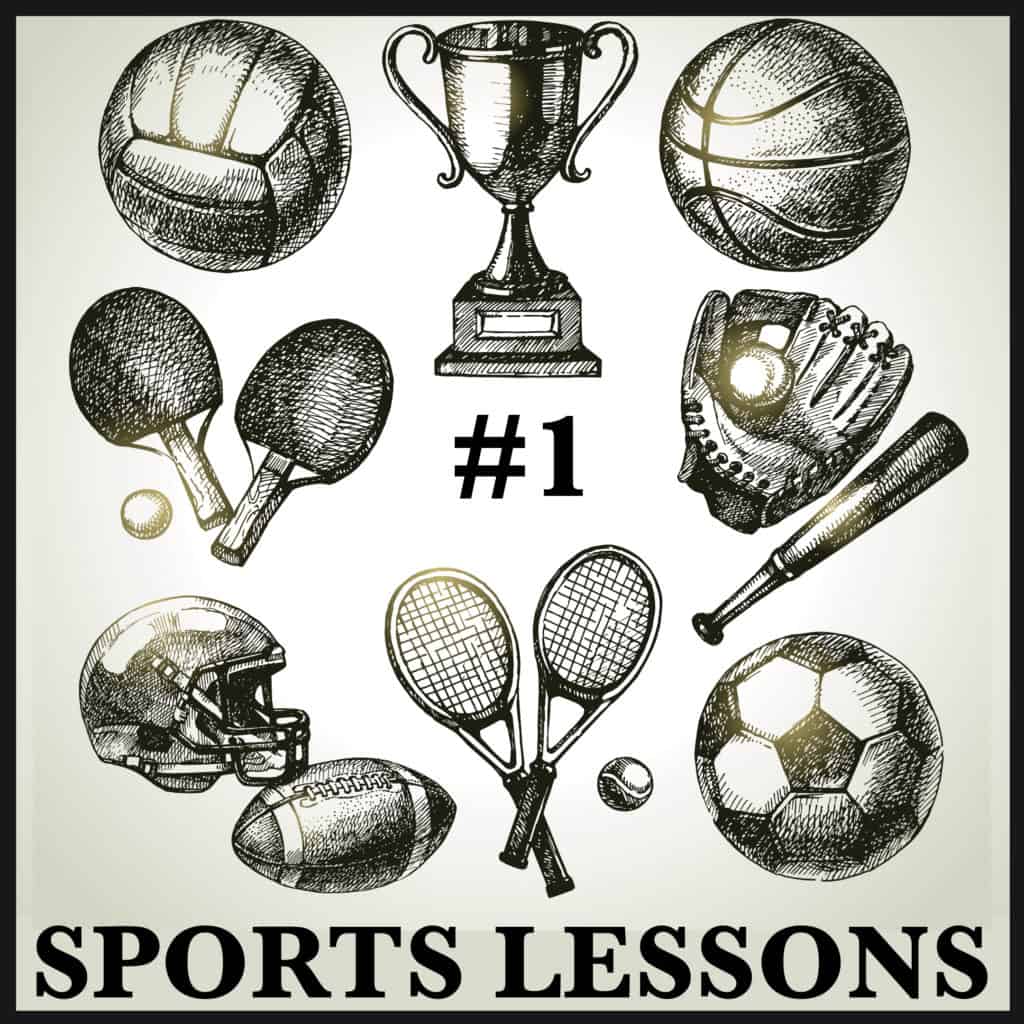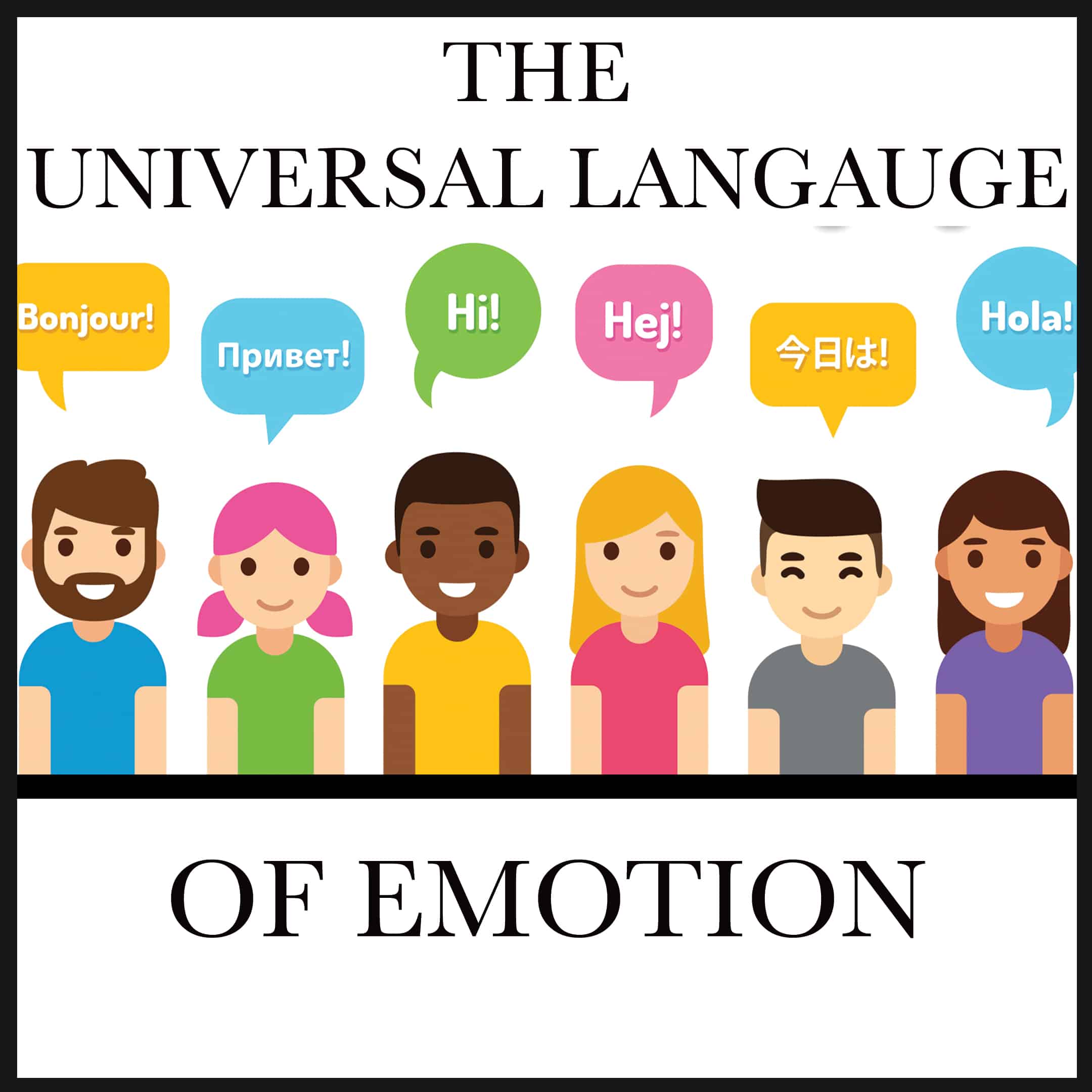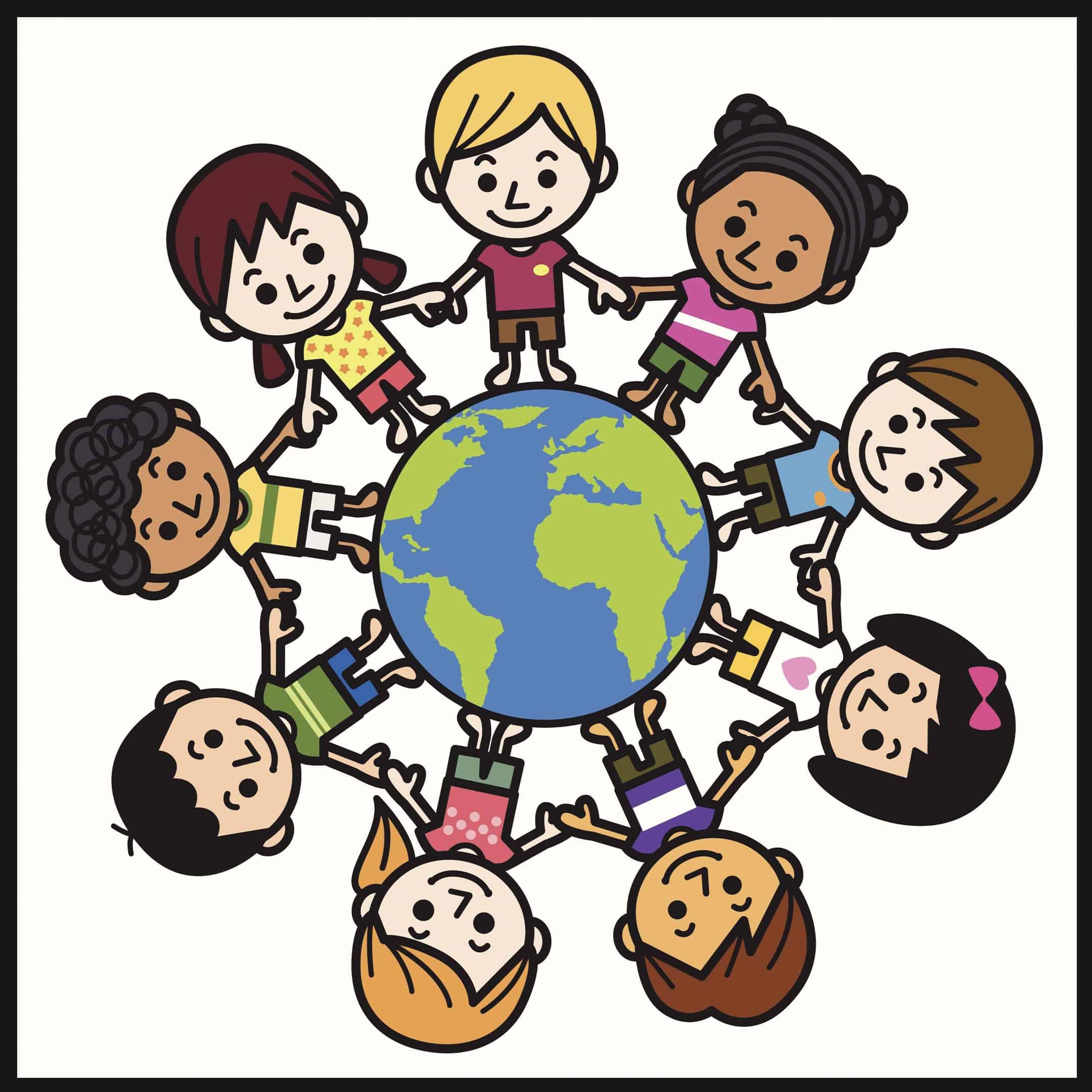Lessons in Fairness, Humility, Effort, Grit, Mastery, Teamwork; it’s all there, when we learn a sport.

By Robert Simmons
1.
Sports teaches you how to play by the rules. There is etiquette in sports. There are boundaries and parameters in sports. Parents should probably be forced to play sports on another field while their kids are practicing, to possibly learn some etiquette and parameters, too. People who do not benefit from early sports training are easy to spot: they try to bend the rules to benefit themselves instead of following them and learning to better cope with reality; They have very poor self-control when in competition, and do not have a realistic assessment of their own abilities (which athletes need in order to practice purposefully on weaknesses within their play). By setting parameters (which BTW would work at home, too), athletes know where they stand, and can plot a realistic course forward, which ultimately requires hard work versus “cheating” or “bending the rules”. This elevates Fairness as a code of honor and a source of pride within athletes, and makes the game somehow noble and above the usual sham of a game We play the rest of the time.
2.
Sports teaches you how to work hard at something – The lessons of hard work [or a “work ethic”], which entails the Grit and the Perseverance to dive deep into a subject, to Grind and fail and get up and work through it, to practice then test then assess then come back through the cycle again, over and over…I could go on all day on this subject. Sorry, but none of this is going to happen in an Algebra class or a Chemistry class. Sports, because it is something kids can be passionate about and really “sink their teeth into”, will teach them these valuable lessons first, which then can be used against them by parents when its time to do some chores, or by teachers, who can call the student out and draw more effort out of them with allusion or reference to these universal “transferrable skills”. FYI, without hard work, the path from competency to mastery to artistry is not accessible.
3.
Sports teaches you about the concept of Team – the concept of working together toward a common goal; by putting We above Me, a group can become greater than the sum of its parts. Team teaches you that each person has a role, and that each role is valuable and necessary, because everybody wins and shares the credit if the Team wins. Because of a responsibility to something greater than yourself, you are more likely to make better individual choices, knowing that hurting yourself hurts everybody else, too. Ironically, the Team is not all about you, and at the same time is in every way about you. This provides a strange inner strength actually brought on by an exterior driver. The best part is how the high of success, when shared, is magnified well beyond personal success (even individual sports figures, at the highest level, are surrounded by a Team that shares in every victory). The clear resonance of shared feelings [as a Team heads toward a common purpose] proves that the first step is always to Begin With The End In Mind [create a shared purpose first], and once We all buy into that end goal, Our emotions will align through the process of obtaining it together.
4.
Sports teaches you problem-solving skills – to be successful at a sport, you need to go beyond the simple mechanical skills involved and even the strategy involved, and begin to “think on your feet”, improvise, think “outside the box”, go with the flow [or sometimes go against it], innovate, try a Plan B or even resort to Plan C or D. Only in a battle for your life will you ever need to think so quickly in real time, and bring together skill [language], strategy [knowledge], intuition [common sense], determination [will to win], athleticism [nature], and focus [self-discipline] into the constantly evolving decision-making process of competition.
5.
Sports teaches you strategy – All the basic conflicts: “man” versus “man”, “man” versus “nature”, or “man” versus “himself” [even “man” versus “society” when competing on the road in a hostile environment] may be present simultaneously during competition, and good strategists will have to mentally prepare for each one prior to stepping onto the playing surface if victory is to ever transpire. Strategy is complex and multi-layered, and is often a process of “burn and learn” requiring years of experiences. The love of competition is what keeps people engaged long enough to reach mastery or even artistry in this subject.
6.
Sports teaches you how to get along with others – when fates are tied together, a seemingly disparate group of people can unite around a shared goal, and in the process get close enough to each other to find they have many other things in common as well – sports may be the best venue available for creating social diversity; there is no doubt that athletes more than anyone else understand the beneficial role sports plays in bringing people together.
7.
Sports teaches you life isn’t always fair – unfairness might come from the opposing side; anything from “gamesmanship” to an intentional “bad call”, forcing you to re-focus [“play through it”] and remember the ultimate goal [winning]. The “most unkindest cut of all”, though, is getting dissed by your own coach, and riding the bench, but this can actually motivate you to either work harder, so you can get in the game and make a difference, or support others who are clearly working harder than you. Sometimes you may be very talented and very hard-working, but your skills are redundant [too many “Quarterbacks” on the same Team, for instance], or do not match up with what a particular Team needs [you play offense and they need defense], which teaches you the valuable lesson of how to advocate for yourself (if your parents stay out of it) and find a Team or position that is ultimately the best fit for you.
8.
Sports teaches you that actions have consequences – competition is akin to war, and in fact was probably invented as a way to non-violently diffuse Our natural competitive instincts (which is why I advocate for exercising our competitive spirit through playing sports versus competing for our basic needs). Taking responsibility for ones actions is the only way to improve them, and athletes learn early on that honestly assessing one’s strengths and weaknesses is the only way to make headway toward improvement and success. Accountability, or owning one’s mistakes, comes easier to athletes, and precipitates humility, acceptance, reflection, then “moving forward” with renewed purpose.
9.
Sports teaches you leadership skills – this could take the form of “leading by example” in the areas of hard work, or skill, or competitive spirit [determination or grit], or by actually leading: calling out others to “pick up their game” when appropriate, or switching to cheerleader mode in order to reinforce winning behavior.
10.
Sports teaches you what your strengths are, and how to use them effectively – no one can own all the weapons [though in the US we do try], so in order to be effective, athletes must quickly learn to identify then cultivate their strongest attributes, whether they be physical, mental, or
emotional. Often within a Team there are members who perfectly embody one of these traits, and thus are singled out as the physical, mental, or emotional leaders of the Team. Coaches use this to set the standard for others on the Team to emulate. Good coaching is also about putting players where they can “shine”; where their strengths can best serve the Team.
11.
Sports teaches you your weaknesses, and how to improve them, or, when necessary, at least not expose them – assessing and accepting one’s weaknesses is the first step [honesty, accountability]. Shoring up weaknesses is a worthwhile endeavor, though in the end, weaknesses are almost always discovered by the opponent. This leads to the forming of strategies that make it difficult for opponents to attack or expose your weaknesses. This often involves both identifying and attacking the opponent’s weaknesses as well, while utilizing your strengths in order to keep opponents “on their heels” enough to prevent them firing away at your weaknesses.
12.
Sports teaches you inner strength, self confidence, and self-efficacy – through the process of constant decision-making, strength-building, strategy-honing, and turning one’s “potential” into true realized success, a confidence is attained that can help in achieving any goal or tackling any issue. This inner strength also helps ward of temptation to do anything self-destructive, as this inner strength was won at great cost and is worth protecting.
13.
Sports teaches you when to compete, and when not to compete – This is the concept of “leaving it on the field”, which allows competitive athletes to identify when to tone it down and when to ramp it up. Granted, there are stories about some athletes who cannot stand losing at anything, no matter how trivial, but in most cases athletes save their killer instincts for Game Day. The hope is that by people participating in a sport, they will get some of that “fire” out of their belly, and be able to recognize and tone down competitive feelings that surface at inappropriate times [like maybe at their kid’s sporting events].
14.
Sports teaches you how to listen, and how to take criticism, knowing it is in your own best interest – no one is easier to teach than someone who wants to learn. When students want to improve, they listen and take feedback, and of course coaches and teachers love this, and the whole learning process gets a big boost. Sports provides a framework for how to learn, and athletes can apply this framework to their other studies as well. The typical framework: honing a skill, drilling the skill, applying the skill in a real setting, competing or testing the skill in a real setting, identifying weaknesses, then going back to step one and repeating the process. Sports is like building an entire house over and over, but each time some facet of the house gets more sophisticated, from the plumbing to the wiring to the interior design, until you have an architectural work of art. In this way, sports has helped school instructors on how to deliver content to their students.
15.
Sports teaches you self-discipline – anything that does not serve the goal of winning is a distraction, and self discipline helps athletes take the “high road” when distractions happen. Self discipline also helps athletes willingly take the harder road, in order to raise their odds of winning, the ultimate goal. Self discipline gives rise to the humility you often see in athletes, brought on by constantly putting themselves on the line, risking failure, and wrestling with their imperfections, in order to improve upon them. The humility that naturally follows from this process also shows itself in the respect athletes often give to one another; acknowledging that each has willingly chosen to go through this same difficult process [in other words, they can “relate”]. Many would label self discipline as a form of “self sacrifice”, but the athlete does not see it this way. They have freely pre-chosen their end goal [winning], which automatically makes all other required actions in the chain toward this goal a necessity, not a sacrifice. Self discipline is a positive way of life, not an external limitation placed on one’s behavior. The freedom to choose one’s own ends must be maintained, but once people internalize a purpose, they can manage their own behavior versus imposing an external punitive system of behavior management. NOTE: needing to employ punitive measures implies there are people who are void of a purpose.
16.
Sports teaches you about friendship, bonding, and loyalty – experiencing something together and creating shared memories immediately gives people a way to relate to one another, and skip over the societal obstacles that usually trip Us up; the isolating pace and time-consuming purpose of constantly securing one’s own needs during every waking moment. NOTE: People joining together to share in a purposeful action is the most efficient way to create instant bonding within a community.
17.
Sports teaches you about managing your own health – sports is a fun and arguably more holistic method than the isolating and gradually tedious physical fitness routines that become more difficult to maintain through time. There is definitely a mental and emotional health component to sports beyond the cardio fitness that occurs. Leagues and Teams are ongoing, and push Us to make healthiness a continual part of Our lives.
18.
Sports teaches you to be ok with your place in the universe – while living Our lives in constant isolation and competition, it is impossible not to notice what other people are receiving compared to you, and this constant unhealthy comparison to others becomes unnecessary once everyone has a shared purpose. I now can accept my role on the Team, and am happy to be of use. In fact, I take pride in my role, rather than worry about what “respect” or “compensation” I am getting compared to someone else. That divisive rhetoric is only present because of the underlying platform by which We are forced to operate. Divisiveness among “Teammates” is the inevitable byproduct of Capitalism, and like two children who inevitably will fight over a toy placed between them, the best strategy for a parent or for a government would be to take the toy away so no one gets to play with it.
19.
Sports teaches you how to synthesize information – next to the art of working hard, the art of synthesizing knowledge is high on the list of weapons We want people to carry in their achievement arsenal. Synthesis is a way of taking pieces of information, like the mechanics of a sport, or the strategies within a sport (how to play the sport) and see the relationship of these pieces of information and turn them into something “more” (to actually play the sport versus simply knowing how to play it). We could say that some individuals might “play” a sport, while others only “play at” the sport. For people to go past mechanics to mastery is hard enough, but only the most elite can be labeled true “Artists”, who have gone beyond the rote information all of Us have access to, and turned it into this new “synthesized” version, that is in one instance is completely familiar, but at the same time brilliantly unfamiliar. This is the root of human progress.
20.
Sports teaches you math, science, engineering (and some technology) – the playing field is strewn with geometry lessons; angles and arcs and even the complex physics of acceleration and spin / rotation, momentum and force, among others. We learn communication skills, and employ both spatial and kinesthetic awareness. We learn human anatomy and physiology (do you know where your Popliteus muscle is?), plus a little chemistry and biology (kosher dill pickle juice is a great source of quick electrolyte replenishment). We even have to learn to factor in weather conditions like wind into our mathematical calculations.
CONCLUSIONS
1) The art of hard work is the most important thing We need to teach Our children, and sports is a great avenue for this. Hard work is the driver of all success. Mastery of a subject is a very long climb, and close to the top the air gets very thin and the climb gets very steep, and progress slows from feet to inches. For children to invest this kind of energy, We have to patiently expose them to a range of activities, in order for them to commit freely to the one that open up this door to “working hard”. Once a field or skill is mastered, the next attempt to master anything will be much easier, as mastery of any subject involves the same kind of total effort and focus and time consumption. NOTE: spreading out a child’s focus does not do them any good. Multiple disciplines can be learned better once the model for success has been internalized.
2) Sometimes We are critical of sports. Some of Us feel that they get in the way of Our kids learning “more important” subjects, ones that will lead to better financial opportunities. We also lament that athletes get preferred treatment at high-end colleges, and balk at the crazy salaries coaches and athletes receive. Some of Us are forced to listen to Our superiors spew out sports jargon in an attempt to motivate Us to make them more money; much of what you hear is probably been mentioned above. Current education models appear to be adopting more of a sports-minded approach as well, with the same sorts of sports jargon interspersed. When you really think about it, however, everything you dislike about sports is when Capitalism puts it’s dirty hands on it. Sports is, in its purest form, a noble pursuit with very few negative side effects (and those can all be turned into learning opportunities). This cannot help but beg the question: If We needed to choose, which one of these models are more expendable, Sports or Capitalist.

 Toward A Universal Language
Toward A Universal Language